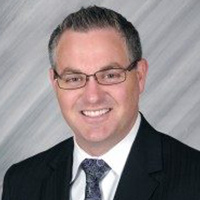Paris DUI-DWI Lawyer, Arkansas
Not enough matches for Paris DUI-DWI lawyer.
Below are all Paris Criminal lawyers.
Jered Medlock
✓ VERIFIEDAccident & Injury, Lawsuit & Dispute, Real Estate, Criminal
Michael Jered Medlock was born in Fort Smith, AR in 1980. He resided with his mother, father, and two sisters: Jill and Jessica, in Mulberry, AR until... (more)
Mark Jefferson Mobley
Wills & Probate, Family Law, Criminal, Personal Injury
Status: In Good Standing
Kevin Holmes
Divorce & Family Law, Accident & Injury, Criminal, Estate
Status: In Good Standing Licensed: 21 Years
Brent Alan Hall
Estate, Divorce & Family Law, DUI-DWI, Criminal
Status: In Good Standing Licensed: 16 Years
Keith Michael Kannett
Estate, Criminal, Bankruptcy & Debt, Accident & Injury
Status: In Good Standing Licensed: 16 Years


